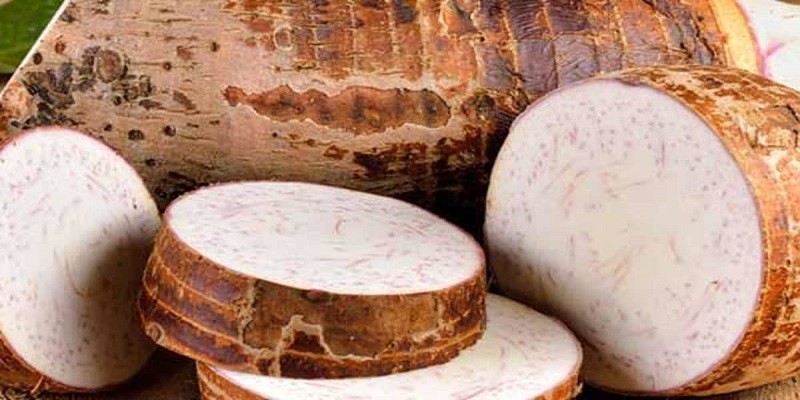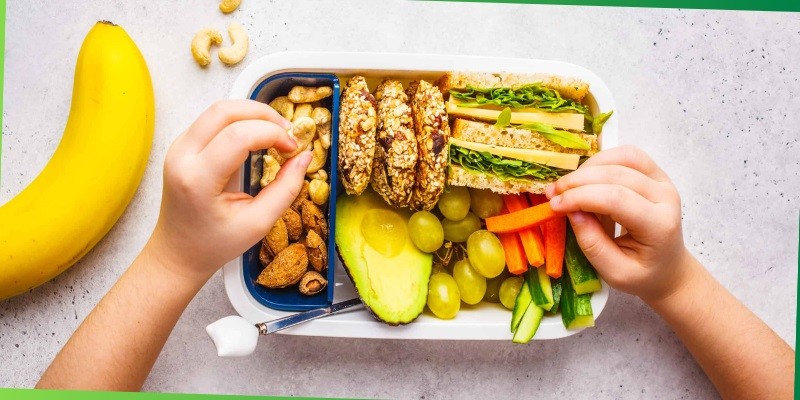Last Updated on May 30, 2024
Yes, you can eat taro while pregnant, but it must be cooked thoroughly to eliminate toxins. Both taro root and leaves offer nutritional benefits, but raw consumption is unsafe due to high oxalate content.
Taro, a starchy root vegetable, is a staple in many cuisines worldwide. Known for its nutty flavor and versatility, taro can be a nutritious addition to a pregnancy diet when prepared correctly. This article explores the safety, nutritional benefits, and precautions of consuming taro during pregnancy.
What is Taro?
Taro, scientifically known as Colocasia esculenta, is a tropical plant grown primarily for its edible corms (root) and leaves. It is rich in carbohydrates and fiber, making it a popular ingredient in both savory and sweet dishes. Taro is commonly used in Asian, African, and Pacific Islander cuisines.
Nutritional Value of Taro
| Nutritional Value | Details |
|---|---|
| Calories | 187 per cup |
| Carbohydrates | 45.7 grams |
| Protein | 0.7 grams |
| Fat | 0.1 grams |
| Fiber | 6.7 grams |
| Manganese | 30% DV |
| Vitamin B6 | 22% DV |
| Vitamin E | 19% DV |
| Potassium | 18% DV |
| Vitamin C | 11% DV |
Risks of Eating Taro During Pregnancy
| Risks | Details |
|---|---|
| Oxalate Content | High levels can cause kidney stones and skin irritation if not cooked properly |
| Sugar Content | Taro powder and boba tea can be high in sugar, leading to weight gain and gestational diabetes |
| Allergic Reactions | Some individuals may experience allergic reactions to taro |
Safe Ways to Eat Taro During Pregnancy
To safely consume taro during pregnancy, always cook it thoroughly to neutralize harmful oxalates. Boiling, steaming, or baking taro root and leaves are effective methods. Avoid raw or undercooked taro to prevent irritation and toxicity. Consult your healthcare provider before adding taro to your diet, especially if you have underlying health conditions.
Alternatives to Taro During Pregnancy
| Alternatives | Precautions |
|---|---|
| Sweet Potatoes | Ensure they are cooked thoroughly |
| Yams | Avoid raw consumption |
| Potatoes | Opt for baked or boiled forms |
| Squash | Cook well to avoid any digestive issues |
Experts Tips
- Moderation is Key: Consume taro in moderation to avoid excessive calorie and sugar intake.
- Proper Preparation: Always wear gloves when handling raw taro to prevent skin irritation.
- Consult Healthcare Provider: Before adding taro to your diet, consult your doctor, especially if you have kidney issues.
FAQs
Can I eat taro root during the first trimester?
Yes, you can eat taro root during the first trimester, but ensure it is thoroughly cooked to eliminate toxins and consult your healthcare provider.
Are taro leaves safe to eat during pregnancy?
Cooked taro leaves are safe and nutritious during pregnancy, but raw leaves are toxic and should be avoided.
How often can I eat taro while pregnant?
Consume taro in moderation, perhaps once or twice a week, to avoid excessive intake of calories and oxalates.
Can taro help with pregnancy-related constipation?
Yes, taro is high in dietary fiber, which can help alleviate constipation, a common issue during pregnancy.
Is taro boba tea safe during pregnancy?
Taro boba tea is safe in moderation, but be cautious of its high sugar content, which can contribute to weight gain and gestational diabetes.
Conclusion
Taro can be a nutritious addition to a pregnancy diet when cooked properly. It offers essential nutrients like fiber, potassium, and vitamins. However, due to its high oxalate content, it must be thoroughly cooked to avoid toxicity. Always consult your healthcare provider before making significant dietary changes during pregnancy.







